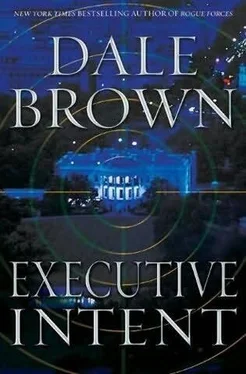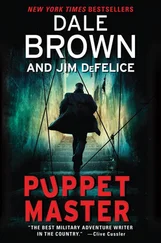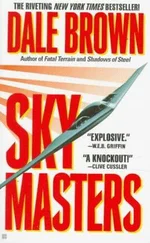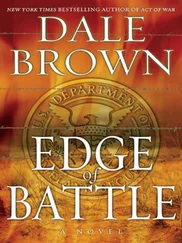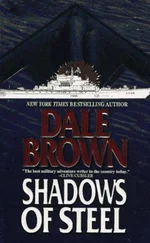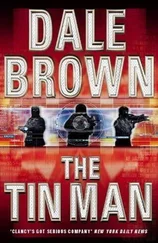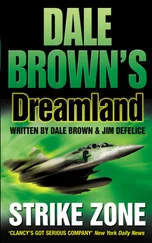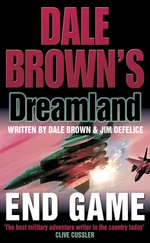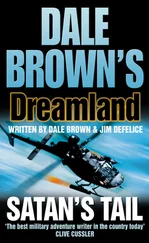“You think they want to attack the space station, Gerald?” the president asked. He turned to Secretary of State Barbeau and National Security Adviser Conrad Carlyle. “That make sense to you, Stacy? Conrad?”
“I think we’re seeing the beginnings of the Chinese response to our naval buildup program, sir,” Carlyle said. “They know they or the Russians can’t build space weapons or aircraft carriers or train experienced carrier crews fast enough to match us. So while they get up to speed on carriers and space, they bring out the antiship ballistic missiles and ASATs.”
“The Chinese don’t want to challenge us, Mr. President, but they don’t want to be seen as being restricted at all by the U.S. Navy,” Barbeau said. “We don’t want to restrict free access to the world’s oceans-”
“We just want the ability to do so if we choose,” the president said. “So what about these damned Dong Feng missiles? Are they something we need to worry about?”
“The DF-21 and KT-3 are mobile solid-fuel missiles with good accuracy even with just an inertial guidance system-they get near zero-zero accuracy with a precision system such as electro-optical, satellite, or laser guidance,” Vista said. “They’re easy to hide, easy to set up, can be fired and reloaded quickly, and are hypersonic, which makes intercepting them more difficult. Even without a high-explosive or nuclear warhead, just one could probably severely damage an aircraft carrier enough to take it out of action just by sheer impact force.”
“But it does have a nuclear warhead, right?”
“Yes, sir, it does,” Vista said. “They can also carry a one-thousand-pound high-explosive warhead, but it has a much shorter range. The ASAT missile is kinetic-kill only-no warhead, hit-to-kill.”
“The nukes are a problem, Mr. President-a very big one,” Vice President Ken Phoenix said. Gardner gave him a fleeting warning glance but let him speak. “ China is deploying nuclear-capable antiship missiles? What if they start deploying them in large numbers? Are they trying to restrict our movements or exclude us from certain areas?”
“The problem is targeting, sir-finding and tracking an aircraft carrier,” Carlyle said. “Oceans are big, especially the western Pacific and Indian oceans, which the Chinese would want to patrol, and carriers move pretty quickly and unpredictably. But if you spot one and pass the location to the launch site, the situation quickly turns critical.”
“Do the Chinese have that ability?” Phoenix asked.
“In certain regions, yes, sir,” Vista said. “The South China Sea, East China Sea, and Yellow Sea are quickly becoming Chinese lakes, like the Gulf of Mexico is to the United States -open to all, but definitely under our direct control. Straits of Malacca, Java Sea, eastern Indian Ocean, the most important sea-lanes from Asia to the Middle East and Europe-not so much yet, but building quickly. They have three satellites in circular equatorial orbits specifically tasked for surveillance of the Indian Ocean and South China Sea, and they operate large fleets of manned and unmanned patrol aircraft to monitor seas closer to the mainland.”
“Well, that’s an awful big chunk of the Far East, and nukes in open ocean can be pretty devastating even if you miss your target,” Phoenix offered. “It’s a serious situation. We should demand they remove the nuclear warheads from those missiles immediately and allow verification inspections.”
The president took a sip of orange juice and thought for a moment; then: “Putting nuclear warheads on missiles out in the open is a big deal, Ken, I agree,” he said, “but Stacy Anne is handling China right now, and I think she’s doing a good job. She closed the book on the Bush incident, so now we can turn to Hainan Island and those missiles.”
He thought for a while longer, then went on: “We let them know that we know they’re there, period. If China wants to put missiles there, let ’em; if they want to do some test launches, we’ll collect even more data on what they have. Now that we know they’re there, we’ll be keeping an eye on them even more closely, and at the first sign of any conflict, we’ll take ’ em out.” He noticed Phoenix wanted to say something, and gave him another warning glance. “I’m not going to do anything that will make the Chinese think we’re scared of their missiles.” He nodded toward the screen. “What about that big-ass rocket out there?”
“That’s their new heavy-lift booster, the Long March-5, sir,” Vista said. “It’s an enlarged Long March-3 rocket with four solid-fuel motors strapped to the outside. It can haul twenty-five tons into low Earth orbit, fifteen tons to geosynchronous orbit, or ten tons to the moon-not quite Saturn-5 class, but still impressive. The Chinese have already announced they’re going to use it to insert the new crew habitation module of their space station, Shenzhou-7. The launch is scheduled for May first. Their first lunar mission-orbit the moon, then return-is also scheduled for this year.”
“ China is really going full throttle on their space program, aren’t they?” Vice President Phoenix remarked.
“Let’s talk about our own space program-namely, Armstrong and those weapon garages,” the president interjected. “Get Page and that general in here.” A few moments later, Ann Page and Brigadier General Raydon were escorted into the Situation Room, along with Secretary of the Air Force Salazar Banderas. Stacy Barbeau did a double take when Kai Raydon entered the room-obviously she liked what she saw. “Take seats, folks, and let’s talk,” the president said. He waited until the newcomers had seated themselves, then said without preamble or pleasantries, “If I didn’t know any better, Secretary Banderas, I’d say you sneaked those Thor’s Hammer things on those space platforms, disguised as antiballistic-missile weapons or space experiments. Am I wrong?”
“Mr. President, I didn’t try to conceal anything,” Banderas said. “We revealed everything in our budgets and research plans.” He glanced at Secretary of Defense Turner. “I briefed SECDEF myself on every aspect of Kingfisher.”
“Miller?”
“I’d have to check my records, sir,” Turner said uneasily. “Kingfisher I recognize. I remember something last year about a successful test of a space-launched surface-attack weapon, but I didn’t know it had been deployed as part of the space-based antiballistic-missile system.”
“I recall getting a briefing, Mr. President,” Phoenix said. Gardner ignored the remark.
“Mr. President, it was a successful employment,” Ann said. “A crisis was averted. We should-”
“Dr. Page, I’ll get to you in a second,” the president said, holding up a hand. “Secretary Banderas, I feel as if I’ve been deceived. I’ve got to explain to the world what we did in Pakistan, and I don’t know enough about these space weapons to do that. That’s my fault and my problem. The question is: What do we do from here?”
“Mr. President, I recommend accelerating deployment of the full Kingfisher constellation,” Banderas said. “They proved they work. We were lucky we had a weapon platform in position to strike. Now that the world understands what we have, they can time their strikes to take advantage of coverage gaps. We need to fill those gaps as quickly as possible.”
“Do you read the papers, Mr. Secretary?” the president asked irritably. “Do you watch the news? Pakistan is accusing us of attacking them with a conventionally armed intercontinental ballistic missile! We killed dozens of civilians. Pictures of that crater are being shown on TV every hour of every day. And I can’t tell the world that we stopped a Pakistani missile attack- India and probably Russia would attack in a heartbeat.”
Читать дальше
